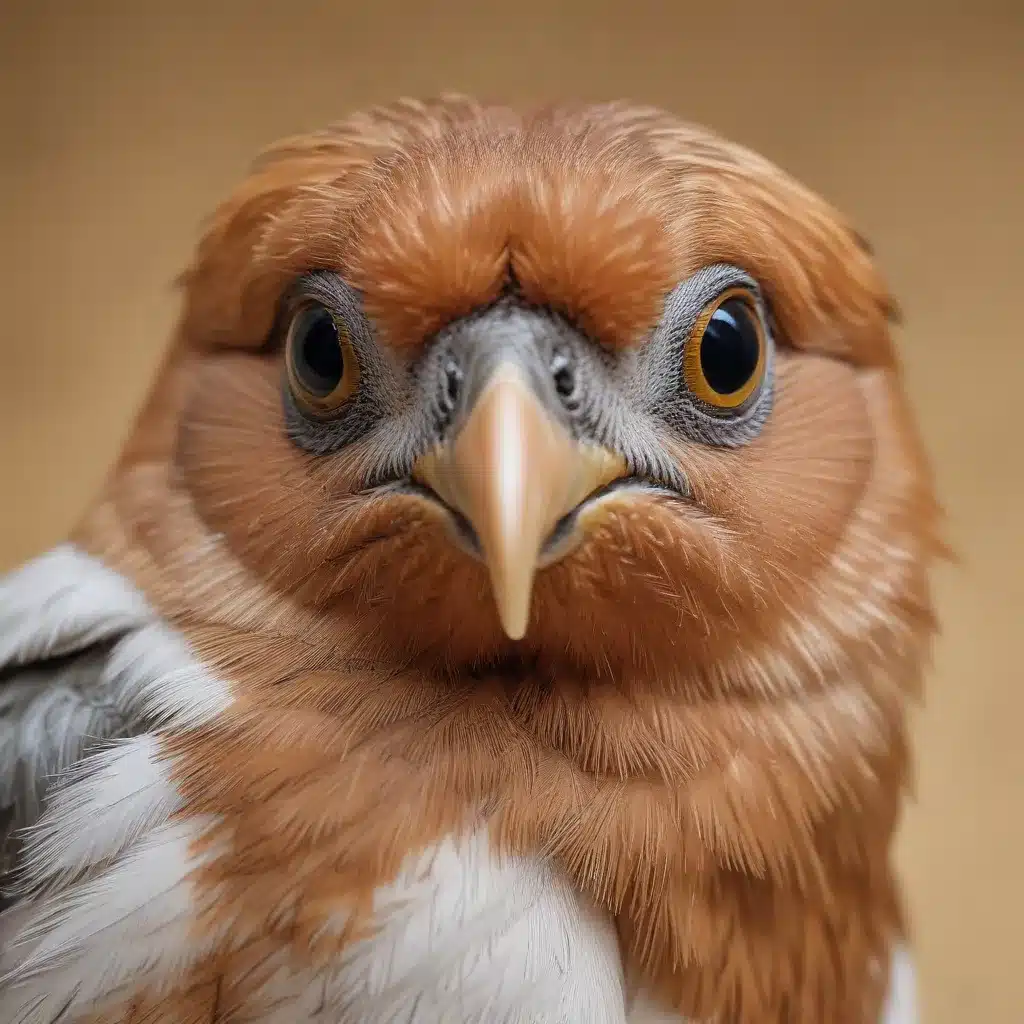
As an experienced avian caretaker and expert in all things feathered, I understand the complexities of caring for our beloved bird companions. Birds, like humans, can experience varying degrees of stress and anxiety, which can significantly impact their overall health and well-being. In this comprehensive guide, we’ll explore the common causes of avian stress, recognize the signs and symptoms, and delve into proven techniques to help your bird manage anxiety and thrive.
Bird Species and Behavior
Common Pet Bird Types
When it comes to popular pet bird species, the options are diverse and fascinating. From the vibrant and charismatic parrots, such as cockatoos, macaws, and African grey parrots, to the delicate and melodic canaries and finches, each bird type has unique behavioral characteristics and care requirements. Understanding the natural tendencies and temperament of your bird is crucial in providing a stress-free environment.
Avian Temperament and Stress Responses
Birds are highly intelligent and social creatures, and their emotional states can greatly influence their behavior. While some species, like budgies and cockatiels, may be more easygoing and adaptable, others, such as cockatoos and Eclectus parrots, can be more sensitive and prone to stress. Recognizing the signs of stress, such as feather plucking, excessive vocalizations, or changes in appetite, can help you identify and address the underlying issues promptly.
Bird Body Language and Vocalizations
Observing your bird’s body language and vocalizations can provide valuable insights into their emotional state. Behaviors like fluffed feathers, rapid head bobbing, or sudden bouts of screaming may indicate heightened stress levels. Conversely, a relaxed, alert posture and natural, melodic chirping can signal a content and well-adjusted bird. Understanding these subtle cues is key to recognizing and addressing avian anxiety.
Avian Anxiety and Stress Factors
Environmental Triggers
The environment in which a bird lives plays a crucial role in their overall well-being. Changes in the home, such as new people, pets, or rearrangement of the cage, can be significant stressors for our feathered friends. Loud noises, sudden movements, and even shifts in lighting or routine can also contribute to avian anxiety. Identifying and mitigating these environmental triggers is a crucial first step in managing stress.
Health and Dietary Considerations
Physical health and proper nutrition are integral to a bird’s emotional well-being. Underlying medical conditions, such as allergies, skin irritations, or nutritional deficiencies, can lead to discomfort and stress. Ensuring your bird receives a balanced, species-appropriate diet and regular veterinary check-ups can help address any underlying issues and support their overall wellness.
Behavioral Indicators of Stress
Recognizing the behavioral signs of stress in birds is essential for prompt intervention. Feather plucking, excessive screaming or vocalizations, changes in appetite, and even self-mutilation can all be indicators of a bird struggling with anxiety. Paying close attention to your bird’s demeanor and responding accordingly can make a significant difference in their quality of life.
Stress Management Techniques for Birds
Environmental Enrichment
Providing a stimulating and engaging environment is one of the most effective ways to help your bird manage stress. This includes offering a spacious cage, varied perches, and a diverse selection of toys and foraging opportunities. Encouraging natural behaviors, such as chewing, climbing, and exploring, can help alleviate boredom and promote a sense of security.
Training and Interaction
Positive reinforcement training and regular interaction with their human companions can be tremendously beneficial for a bird’s mental well-being. Engaging in clicker training, teaching tricks, or simply spending quality time with your feathered friend can help build trust, reduce anxiety, and provide mental stimulation.
Calming Supplementation
In some cases, natural calming supplements may be a helpful addition to your bird’s stress management routine. Products containing ingredients like chamomile, lavender, or passionflower have been known to have a soothing effect on birds. Always consult with an avian veterinarian before introducing any new supplements to ensure safety and proper dosage.
Veterinary Care and Support
Assessing Bird Wellness
Regular wellness check-ups with an avian veterinarian are essential for maintaining your bird’s overall health and identifying any underlying issues that may contribute to stress. During these appointments, the vet can perform a thorough physical examination, conduct diagnostic tests, and provide personalized recommendations for managing your bird’s specific needs.
Holistic and Medicinal Treatments
In some cases, a comprehensive approach that combines holistic and medicinal treatments may be necessary to address severe or persistent avian anxiety. Your avian veterinarian may recommend a combination of environmental modifications, dietary adjustments, and targeted medications or supplements to help your bird find relief and restore their well-being.
Working with Avian Specialists
Collaborating with experienced avian specialists, such as behaviorists or trainers, can be invaluable in developing a customized stress management plan for your bird. These experts can provide in-depth assessments, offer personalized guidance, and work closely with you to implement effective strategies tailored to your bird’s unique needs.
In conclusion, addressing avian anxiety requires a multifaceted approach that considers the individual bird’s physical, emotional, and environmental needs. By creating a stress-free environment, providing enrichment and positive interaction, and working closely with avian professionals, you can help your feathered companion thrive and live a happy, fulfilling life. Remember, every bird is unique, so be patient, adaptable, and attentive to their cues – your efforts will be rewarded with a content and healthy bird. For more information and resources, visit Mika Birds Farm.


